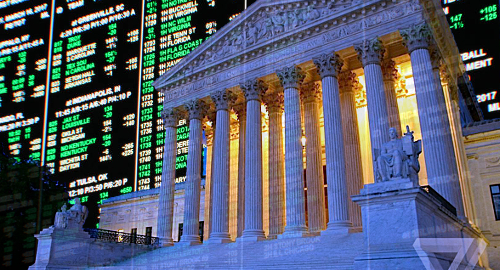Sports Gambling Us Supreme Court

In a monumental ruling today, the U.S. Supreme Court ruled in a 6-3 decision that the Professional and Amateur Sports Protection Act of 1992 (PASPA), a federal ban on sports wagering, is unconstitutional, which is expected to pave the way for legalized and regulated sports betting in the U.S. At a rapid pace. United States Supreme Court Frees States to Legalize Sports Gambling Posted on May 21st, 2018 by Ashley C. Wakefield The legality of sports gambling is a controversial topic, made only more so last week because of a 6-3 decision by the U.S. Supreme Court, in Murphy v. Washington: The United States Supreme Court on Monday gave its go-ahead for states to allow gambling on sports across the nation, striking down a federal law that barred betting on football.
The legality of sports gambling is a controversial topic, made only more so last week because of a 6-3 decision by the U.S. Supreme Court, in Murphy v. NCAA, striking down a nearly 25-year old federal law prohibiting states from authorizing gambling for sporting events.
Sports betting advocates won a landmark legal battle in Washington on Monday morning. The US Supreme Court ruled that a state ban on sports gambling is unconstitutional. By Dan Ippolito In a monumental ruling today, the U.S. Supreme Court ruled in a 6-3 decision that the Professional and Amateur Sports Protection Act of 1992 (PASPA), a federal ban on sports wagering, is unconstitutional, which is expected to pave the way for legalized and regulated sports betting in the U.S. At a rapid pace.

For years proponents have said regulated sports gambling can increase state revenues while reducing illegal gambling operations. Opponents claim this sports gambling is particularly dangerous and attractive to young people, and will jeopardize the integrity of American sports.
For these reasons, in 1992, the federal government enacted The Professional and Amateur Sports Protection Act(PAPSA). PAPSA made it unlawful for states to enact legislation authorizing sports gambling. While PAPSA did not make sports gambling a federal crime, it did provide an avenue for sporting organizations to file suit to challenge any state law authorizing that conduct.
In 2012, New Jersey enacted legislation legalizing sports gambling, which was challenged by the NCAA and other professional sports leagues on the basis that the law violated PAPSA. Defending the law, New Jersey argued that PAPSA violated the 10th Amendment to the U.S.Constitution, which reserves to the states powers not delegated to the United States in the Constitution. This amendment has become known as the “anti-commandeering” principle. The District Court rejected New Jersey’s argument, finding that PAPSA was constitutional and that New Jersey’s law violated PAPSA. On appeal, the Third District affirmed, and the US Supreme Court denied review of the case.
In 2014, instead of enacting a new law like it had in 2012, New Jersey repealed its previous laws prohibiting sports gambling. The sporting leagues again filed suit against New Jersey, stating the law violated PAPSA and New Jersey maintained that PAPSA was unconstitutional. Again, the District Court agreed with the sporting leagues, and the Third District affirmed. This time, however, the US Supreme Court agreed to review the case.
On review, the U.S. Supreme Court acknowledged the importance of preventing Congress from controlling state legislation as a structural protection of liberty and a promotion of political accountability. Keeping these rationales in mind, the Court found Congress went too far when it passed PAPSA, stating:
The PAPSA provision at issue here – prohibiting state authorization of sports gambling – violates the anticommandeering rule. That provision unequivocally dictates what a state may and may not do.
Sports Gambling Us Supreme Court Cases
What does the Supreme Court’s ruling mean for sports gambling in the US? The U.S. Supreme Court’s ruling struck down all provisions of PAPSA, but it does not automatically legalize sports gambling in each state. Rather, states are now free to enact legislation authorizing sports gambling, unless Congress chooses to regulate sports gambling directly. More broadly, the principle announced last week may lead to the overturning of other Congressional actions aimed at curbing state power or compelling states to undertake affirmative steps to support Congressional actions.